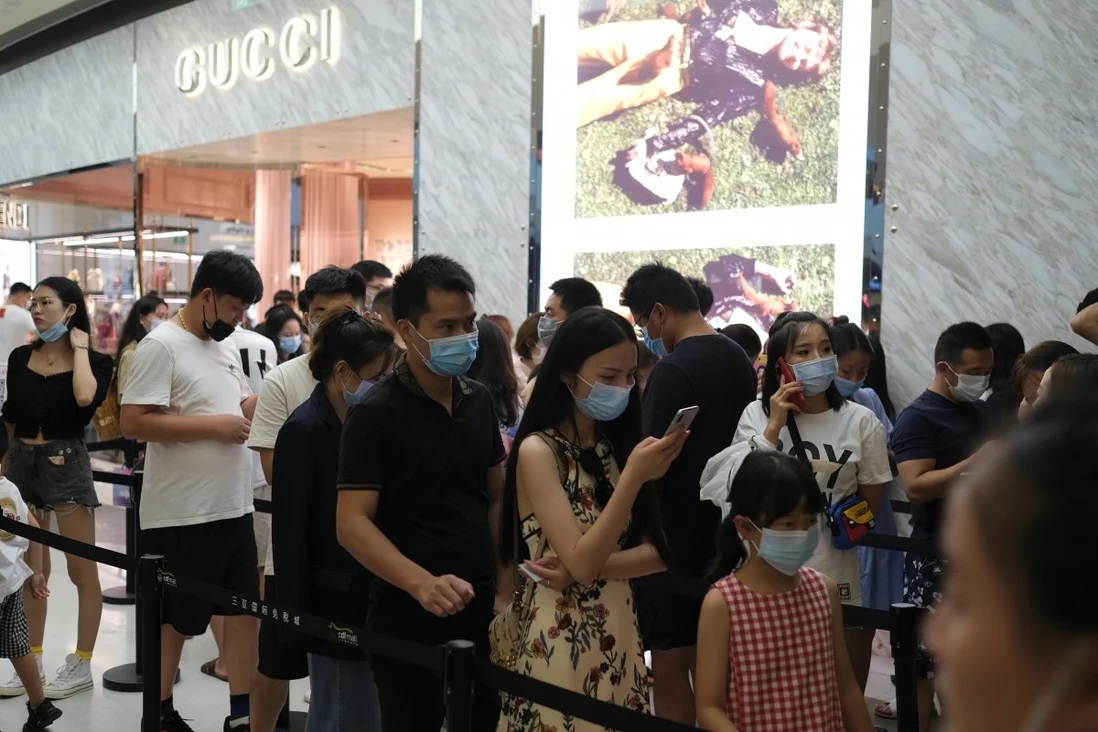(ATF) What good news stories emerged in the luxury space in 2020?
The luxury sector was really the first to be hit as the pandemic got underway given it emerged from China, the key demand driver for the sector, with Chinese consumers making up over a third of the sector’s demand. That then gradually spread westward. What is impressive is how quickly the luxury companies stepped up to use the spare capacity that they had during the lockdowns in order to help stem the crisis. This was done through a variety of ways: L’Oréal and Pernod Ricard, for example, made hand sanitiser in their alcohol facilities. Several companies also made sizable financial donations and Prada pivoted to making PPE and masks for healthcare workers. Even companies like Nike and Adidas started to offer their training apps for free so people could maintain their physical and mental wellbeing during the height of the lockdown.
What has really been good news for the sector is the subsequent snapback in demand, particularly among the key Chinese cohort but also quite interestingly among a local luxury shopper who had previously been quite apathetic, especially in Europe. They suddenly came back to life over the summer and into the autumn, leading to a key demand engine once more in addition to the Chinese and American shoppers.
Another positive that has emerged is the embracing of technology by many of these companies. Luxury has historically been an industry which has been somewhat reluctant to embrace online; that all changed with the pandemic. The switch towards online and towards more direct to consumer rather than wholesale, as well as a real engagement among younger and local consumers, has been among the feel-good stories that have emerged for the sector this year.
Can you highlight one stock you identified early?
I would highlight two stocks which juxtaposed show how the industry is evolving. One is a new luxury stock, Farfetch, which has gone up six-fold this year. This is a name we have held for some 18 months; at times it has been a little turbulent, however this year, as a result of the pandemic and the forced embracing of e-commerce by many luxury companies, this company really came into its own. It took off as companies embraced its luxury platform allowing consumers to interface with brands. So that is a name that we were early to and we stuck with, despite its initial volatility, over the last 12 months. Another stock I would highlight is a more classic luxury name in Prada. We strongly believe that among the recovery names in the sector Prada was best positioned and this is what has emerged. Its Re-Nylon collection, which uses sustainable materials, has really captured the attention of younger consumers and brand momentum is extremely strong versus other recovery plays. Its shares are up about 40% year-to-date.
Was there a stock you avoided which underperformed?
Bottom-up driven stock selection remains critical. One name I would highlight is Aston Martin. At the time of writing, the difference between the performance in share price terms of Aston Martin and Ferrari is about 75 percentage points. Aston Martin does not have the same length of wait list or level of demand for its vehicles and cannot match the prodigious cash generation that we have become used to from Ferrari. Areas of the market we have avoided are the cruise lines, hotels and gaming operators because clearly they have borne the brunt of the crisis. We are now starting to become more interested in this area with the rollout of the vaccine, but more the luxury hotel and duty-free operators rather than the cruise lines and gaming companies.
Why are you positive on the luxury sector for 2021?
I remain very positive and constructive on the luxury sector going into 2021 for a number of reasons. The first of these is the release of pent-up demand that we have seen over the summer and subsequently will continue into 2021 because it is supported by very robust household balance sheets. The build-up of excess savings during the crisis by middle class and above households around the world has been strong and will support further consumer spending as we head into 2021 along with further fiscal stimulus, particularly in the US.
Second, we have middle class formation in China which remains critical for the sector growth to continue at its pace prior to the pandemic. The Chinese government is very focused on developing a consumer economy and diversifying away its dependence from infrastructure spend. This will further enable the luxury sector to grow along with the growing importance of a younger consumer cohort which has a naturally higher propensity for luxury consumption. An overlay on top of all this is the increasing emphasis on sustainability and the focus on buying less but buying better, which naturally plays into luxury demand and will support it into 2021.
What keeps you awake at night?
Luxury has been a relatively resilient sector. Every time there has been a downturn it has bounced back harder and stronger than it was prior to the crisis. In fact many threats that are existential to many other sectors, such as technology, present an opportunity for the luxury sector rather than a threat. That said, the worries that keep me awake at night are more brand specific; given that these brands interface with the consumer in a very direct way any sort of PR scandals get picked up by consumers and immediately amplified by social media. This is why I think these brands need to be on the front foot in terms of how they engage with the consumer and their sensitivity in doing so.
Historically we had an anti-corruption crackdown in China in 2012-2013 which affected the sector severely. I do not see this repeating, primarily because it achieved what it was meant to. Chinese consumption today is very much made up of middle class consumers rather than government officials, but peripherally if something leftfield were to emerge it could be something like that. A further worry I would have is significant middle class tax hikes, given that this is a sector very much geared into aspirational middle class consumption. However, the recent mood music, particularly with the new US presidency, is that taxes for the middle class are not expected to increase immediately. I expect this will remain for the duration of the recovery from the pandemic.
READ MORE:
A millennial love affair: China’s second-hand luxury goods market booms
China rebounds as shoppers return, factories hum -poll





















